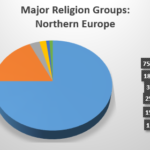Understanding Religious Strictness: Beliefs, Practices, and Social Impact

Introduction: Defining Religious Strictness
Strictness in religion refers to the degree to which adherents are expected to observe doctrines, rituals, and ethical prescriptions. This concept is highly contextual, varying not only between religions but also within denominations and sects. The question of “what is the strictest religion” is nuanced; it depends on the metrics used-ritual observance, behavioral codes, dietary laws, or social expectations. Understanding these dynamics can help seekers, scholars, or the simply curious better grasp the lived experience of religious discipline.
Core Components of Strict Religions
Strict religions are generally characterized by:
- Comprehensive behavioral codes that govern daily life, including dress, diet, and social interaction.
- Frequent rituals and mandatory observances, such as daily prayers, regular fasting, or compulsory worship attendance.
- Clear boundaries for membership and often strong expectations for communal participation.
- Sanctions or consequences for failing to comply, which may be spiritual, social, or both.
These features aim to reinforce group cohesion and identity but can present challenges for individual autonomy. [5]
Examples of Religions Often Considered Strict
While no single faith can be objectively labeled as “the strictest,” certain groups are frequently cited as examples due to their rigorous practices:
Haredi (Ultra-Orthodox) Judaism
Haredi Jews observe a demanding regimen of daily religious study, prayer, and strict adherence to halakha (Jewish law). This includes detailed rules for dress, diet (kashrut), Sabbath observance, and separation from secular society. In Israel, the Haredi community is recognized for its deep commitment and insular lifestyle, but strictness varies even within this group. [4]
Salafi and Wahhabi Islam
Salafism and Wahhabism, branches within Sunni Islam, emphasize a literal interpretation of Islamic texts and strict observance of religious rituals. Followers are expected to adhere to the Five Pillars of Islam, maintain conservative dress codes, and avoid innovations in worship. The level of strictness can be higher in communities or nations where these interpretations dominate. [1]
Jehovah’s Witnesses
This Christian denomination is known for its uncompromising positions on doctrinal purity, evangelism, and moral conduct. Members must abstain from blood transfusions, celebrate no national holidays or birthdays, and maintain separation from secular society. Regular participation in ministry and adherence to organizational rules are required. [2]
Other Notable Examples
Other groups often described as strict include Amish Christians, certain Buddhist monastic orders, and some Hindu sects, all of which set high standards for discipline, ritual, and lifestyle.
Why Do Strict Religions Succeed?
Sociological studies suggest that religious communities with high expectations often have stronger member retention and social cohesion. Strictness can foster a sense of belonging, shared purpose, and collective identity. It may also deter nominal participation, leading to a more committed core of followers. [5]
However, strictness can also create barriers to entry and retention, leading to higher rates of attrition among those unable or unwilling to meet expectations. The balance between discipline and inclusivity often shapes a group’s long-term viability.
Practical Steps for Learning About and Engaging with Strict Religions
If you are interested in learning more or participating in a strict religious tradition, consider the following:
- Research the Tradition : Use reputable sources such as academic books, official denominational websites, or recognized research centers. For side-by-side comparisons, the Patheos Library offers detailed overviews of major world religions. [1]
- Visit Official Community Centers : Many religious groups have places of worship or community centers open to visitors. Contact local congregations to inquire about attending services or informational sessions.
- Consult with Practitioners : Speak directly with adherents or clergy to understand daily practices and expectations. Many synagogues, mosques, churches, and temples offer introductory classes or Q&A sessions for newcomers.
- Participate Respectfully : If invited, observe or participate in rituals with respect and adherence to the group’s guidelines. Dress codes and behavioral norms are often strictly enforced, so inquire ahead about expectations.
- Consider Commitment Carefully : Joining a strict religious group can be life-changing. Understand the requirements, including potential impacts on personal freedom, family life, and career. Seek counsel from both current members and those who have left for a balanced perspective.
For those looking to join or study such groups, it is wise to review literature from both proponents and critics, and to consider attending open houses or informational events where available.
Challenges and Controversies
Strict religious systems can face criticism for perceived rigidity, insularity, or potential for social pressure. Some claim that high demands may lead to psychological stress or difficulties for those wishing to leave. At the same time, many adherents find deep meaning, stability, and community in such environments. It’s important to approach any tradition with cultural sensitivity and awareness of differing views. [3]
Alternative Approaches to Religious Discipline
Not all religiously strict communities are the same. Some focus on ritual and public observance, while others emphasize personal ethics or intellectual rigor. For example, monastic communities in Christianity, Buddhism, and Hinduism often require vows of poverty, chastity, and obedience, setting a high bar for entry but offering an immersive path for those seeking disciplined spirituality.
Conversely, many mainstream religions offer options for varying levels of commitment, allowing adherents to choose their degree of observance. This flexibility can accommodate diverse personal circumstances while still providing a sense of spiritual structure.

Source: dennisharper.pages.dev
Summary and Key Takeaways
There is no single answer to the question of “what is the strictest religion” due to differences in doctrine, practice, and individual interpretation. However, certain communities stand out for their comprehensive rules and high expectations. If you are interested in learning more, start with reputable sources, engage directly with practitioners, and approach new traditions with respect and openness. Remember that strictness can offer both challenges and profound rewards, and the best path depends on your personal goals and values.

Source: speedkhabar.com
References
- [1] Patheos (2023). Side By Side Comparison Lens: A Religious Information Resource.
- [2] Pew Research Center (2008). U.S. Religious Landscape Survey: Religious Beliefs and Practices.
- [3] Warthen, L. (2023). A Comparison of Strict Constitutionalism and Religious Fundamentalism. Scholars Bank, University of Oregon.
- [4] Pew Research Center (2025). Comparing Levels of Religious Nationalism Around the World.
- [5] Religion For Breakfast (2018). Why Strict Religions Succeed [YouTube Video].






